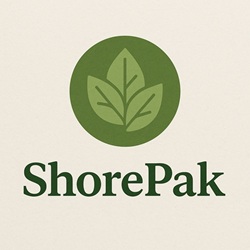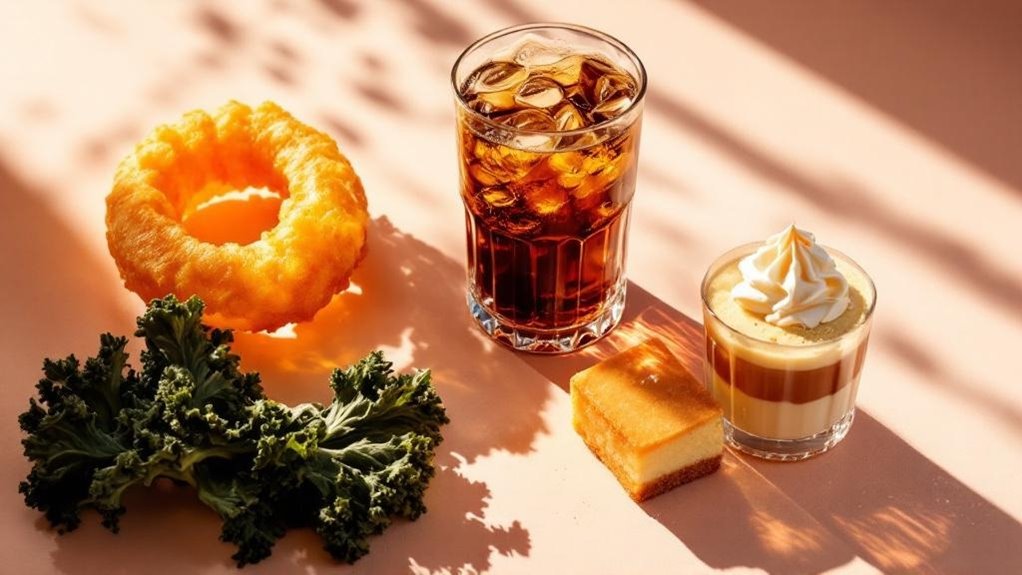Many people underestimate the impact of their diet on collagen production, an essential protein for skin and joint health. They often enjoy convenient snacks without realizing how these choices can lead to increased inflammation and collagen damage. As they navigate their food options, it’s important to identify which items can undermine their collagen levels. Understanding these harmful foods could be the key to preserving youthful skin and overall well-being as they age.
Key Takeaways
- Refined carbohydrates, like cookies and crackers, can damage collagen quality and hinder skin elasticity.
- Fried foods, such as French fries, increase inflammation, negatively impacting collagen health.
- Sugar-sweetened beverages spike insulin levels, which can harm collagen production and skin health.
- Processed meats, including hot dogs and pepperoni, contain nitrates that are linked to inflammation and collagen degradation.
- Consuming these harmful foods can accelerate aging and reduce joint health, undermining overall well-being.
Understanding Collagen and Its Importance
Collagen, the body’s most abundant protein, plays an essential role in maintaining skin elasticity, joint health, and overall vigor.
It acts as a structural protein, providing strength and support to various tissues. As people age, collagen production naturally declines, leading to wrinkles and joint discomfort.
Maintaining adequate collagen levels is vital for aging gracefully and preserving youthful skin. A well-balanced diet markedly influences collagen preservation, ensuring that the body receives the necessary nutrients to support its production.
Foods to Avoid for Collagen Preservation
Maintaining healthy collagen levels requires not just an emphasis on beneficial foods but also an awareness of those that can undermine its integrity.
Refined carbohydrates, often found in snacks like cookies and crackers, can diminish collagen quality. Fried foods, such as French fries, elevate inflammation, risking collagen damage. Sugar-sweetened beverages spike insulin levels, leading to harmful compounds that affect collagen health.
Processed meats, including hot dogs and pepperoni, contain nitrates linked to inflammation. By avoiding these collagen-destroying foods, individuals can better support their skin and joint health, enhancing overall well-being and resilience against aging.
Embracing a Collagen-Boosting Diet
A well-rounded diet can markedly enhance collagen production and support overall health.
Incorporating dark, leafy greens, antioxidant-rich fruits, and fermented foods helps combat inflammation while promoting collagen synthesis.
Lean protein sources, like wild-caught fish and legumes, provide essential amino acids necessary for collagen formation.
Lean proteins, including wild-caught fish and legumes, supply vital amino acids crucial for effective collagen production.
Healthy fats, such as those found in nuts and seeds, facilitate nutrient absorption.
Additionally, beverages like green tea and dark chocolate can offer protective antioxidants.
FAQ
How Does Stress Affect Collagen Production in the Body?
Stress negatively impacts collagen production in the body by increasing cortisol levels. This hormone can lead to inflammation and tissue breakdown, ultimately reducing collagen synthesis and contributing to skin aging and joint discomfort over time.
Can Supplements Help Restore Collagen Levels Effectively?
Research shows supplements can effectively boost collagen levels. They provide essential amino acids and nutrients, supporting skin elasticity and joint health. Individuals often notice improved appearance and mobility after consistent supplement use, enhancing overall wellness.
What Role Does Hydration Play in Collagen Health?
In the garden of health, hydration’s the rain nurturing collagen’s growth. It keeps skin plump and joints flexible. Without enough water, collagen wilts, leading to dryness and discomfort. So, heeding hydration’s call is essential.
Are There Specific Cooking Methods That Preserve Collagen in Foods?
When considering cooking methods, steaming and poaching preserve collagen better than frying or grilling. These methods maintain nutrient integrity, helping to support collagen levels in foods while minimizing damage from high heat and unhealthy fats.
How Quickly Can Diet Changes Impact Collagen Levels?
Diet changes can quickly impact collagen levels. Within weeks, incorporating collagen-boosting foods improves skin elasticity and joint health. Regularly consuming these foods enhances overall wellness, promoting a more youthful appearance and better mobility over time.
Conclusion
To summarize, protecting collagen is like nurturing a delicate garden; it requires careful attention to what you feed it. By steering clear of harmful foods, you’re not just preserving your skin and joint health, but also cultivating a vibrant, youthful appearance. Embracing a diet rich in collagen-boosting nutrients allows your body to flourish, ensuring that the soil of your well-being remains fertile and robust as you continue to grow and thrive through the years.

